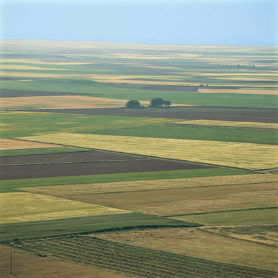About
Liberal-democratic societies have traditionally been based on the image of a clear separation between the private and the public sphere. The state is supposed to protect public interests, while private actors have the freedom to pursue their own private interests. The concept of ownership plays a crucial role in this liberal-democratic conception of society. As becomes apparent from the earliest philosophical theories of the modern liberal-democratic state (17th/18th century), the legitimate role of public institutions was to protect a private sphere in which owners are free in how to use their property. The rise of the market economy depended on this arrangement. However, the reality of contemporary liberal-democratic societies has increasingly diverged from this theoretical picture of a clear separation between the private and the public sphere. Three developments deserve special attention.
- First, the free exchange of private property leads to major differences in wealth between individuals. This inequality can spill-over into the public sphere. In a democratic society, citizens are supposed to be equal in their ability to influence the course of the political process, but inequalities in wealth pose a threat to that democratic ideal.
- Secondly, apart from individuals, the private sphere also consists of corporations. Although corporate ownership is private property in a legal sense, the actions of companies, in a context of globalization and deregulation, increasingly also affect vital public interests. This political role of companies leads to problems of democratic accountability that often remain unresolved.
- Thirdly, there are new and old structures of common ownership of groups (common pools), such as those known from the management of natural resources, the activities of cooperatives, joint productions in the virtual sphere (eg ‘open source’ software) and now also in some activities in the emerging ‘sharing economy’. These are often legally based on private property, but at the same time motivated by the desire to promote public interests (solidarity, social justice). Here, too, private and public are mixed together.
These developments, each in their own way, form a challenge for the liberal image of a sharp separation between public and private domains, and the legitimacy of political authority based on them. Are public institutions still well-equipped to protect public interests, where private and public intertwine in practice? In this project, the above three developments will each be studied separately in separate subprojects, in order to answer that question. The leading motive will be formed by the development of the concept of property and the place of that concept in liberal-democratic theory formation. The concept of property which at the beginning of the liberal tradition fulfilled a legitimizing function, was a very specific conception of property, giving the owner almost absolute control over his possessions, resulting in an inviolable private sphere and the justification of large differences in wealth between citizens. The exercise of property rights remains a private matter, and is seen as ‘apolitical’ (without effects on political institutions). This classical view remains a normative point of reference for contemporary liberal theory. The most important question is whether this is still acceptable in the light of the developments described above concerning the forms of ownership of individuals, groups and companies. The goal of this project is to see whether an alternative concept of ownership desirable and feasible. Such an alternative concept could update liberal-democratic theories, so that they take account of and become relevant to a world in which the boundary between the private and public sphere is becoming blurred Moreover, such an update can help society to answer the question of whether the developments outlined above are or are not a threat to liberal democracy; and if so, how to deal with them and to look for possible solutions.
Sub-Projects


Common Property
This subproject focuses on practices of common and shared property and their implication for the traditional divide between the private and public sphere.

Individual Property
Wealth inequalities are relevant in the context of political philosophy’s traditional tasks of (i) proposing conceptions of social justice, and (ii) proposing conceptions of political legitimacy. An engagement with both contexts is necessary for rethinking property relations.

